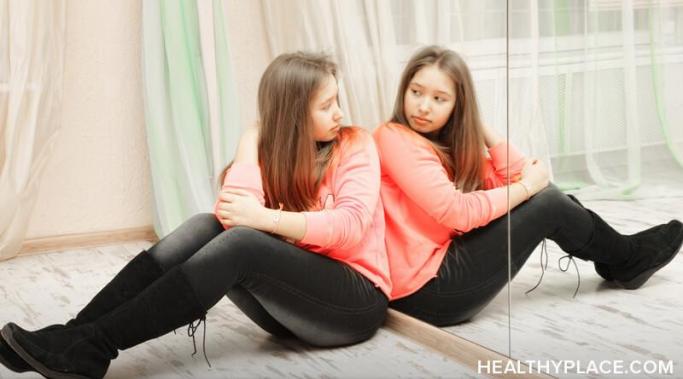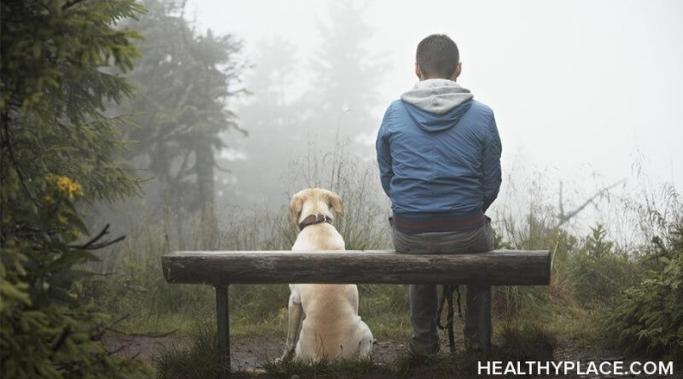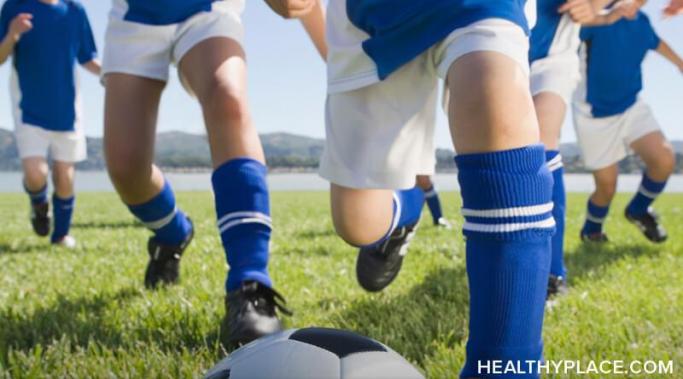Blogs
It would be a blatant lie to insinuate that eating disorder (ED) belief systems and thought patterns never cross my mind. Even with all the diligent, consistent recovery work I have put in over the years, I am still not immune to occasional insecurities, temptations, and criticisms from the eating disorder voice that once consumed each waking moment of my life. However, while I used to reactively listen and submit to this voice—no questions asked—I now understand there are healthier, more empowering alternatives. So how do I respond when these ED thoughts re-surface? I talk to my reflection in the mirror.
Late last summer, I went through weeks of acute panic and anxiety. I was very sick, and the mental and physical symptoms I endured were traumatic. I am in treatment to address those traumas, including the guilt and shame I felt from being sick and the residual guilt and shame I feel to this day.
Throughout my life, I've never felt like I could simply enjoy a moment. Each one felt rushed and incomplete. A new episode of a TV show? I'd watch it while I did my homework. I'd play video games while I listened to a podcast. I'd scramble to write something at the last moment, just before a deadline.
When we recover from binge eating disorder (BED), or any other type of eating disorder, we are changing our way of being in the world. We change behaviors, our reactions to emotions, our environments, and the way we think about ourselves and compare ourselves to other people. Recovery is a massive internal and external renovation that is difficult to see up close. Sometimes, you can only notice changes when you compare how you feel today versus how you felt many years ago in eating disorder recovery.
For people with anxiety, being assertive and upfront about how they feel and what they think can be hard. As someone with social anxiety disorder, I was no different.
Searching for or asking about mental health coping strategies brings up fairly regular suggestions, which include things like meditation, journaling, exercise, and self-care. But, what’s to be done when the chosen strategies to cope with mental health struggles no longer work? It might be easy to fall into self-stigmatizing thoughts of how you must be really “messed up” or beyond help, but here’s why you should reconsider that line of thinking.
Last week, an online friend died by suicide. While I am still grieving and in shock, I am not surprised. They had been struggling with depression for a while. As someone living with clinical depression for years, I know that thoughts of self-harm and suicide are standard. It is hard not to act on them, and doing so can be fatal. Depression may or may not be visible, but it is always cruel. It impacts every aspect of one's life and can even cut it short. She is the first friend who I have lost to death by depression, and I hope she is the last. However, metaphorically speaking, depression causes one to lose friends. I know this because it has happened to me quite a few times. (Note: This post contains a trigger warning.)
Simone Biles, Naomi Osaka, Ben Simmons--at first glance, these three individuals do not seem to have a lot in common; but upon closer examination, there is more similarity here than meets the eye. Within months of each other, Biles, Osaka, and Simmons all spoke publicly--some more frequently than others--about their mental health struggles. While Biles and Osaka received some criticism, the general sentiment was acceptance and support; for Simmons, however, the same can not be said. So why did the public mock him and rally behind her? Why was he a laughing stock and she a hero? Unfortunately, the answer to this question may run as deep as the all-too-familiar and stigma-fueled cliché: real men don't cry.
Before the Tori Amos concert I went to with my husband, Tom, in late May, I hadn’t been to a live concert since 2007. The reason for that centered around my schizoaffective anxiety and my response to crowds and noise. But, soon after the pandemic started and even before vaccines were available, I promised myself that I would go to her concert if Tori toured again. So, even though the pandemic is still here, I bought tickets for myself, and Tom as soon as Tori announced North American tour dates. Here’s how it went.
One of the most challenging aspects of being a victim of verbal abuse is managing your triggers. As I progress through my healing journey, I am slowly learning how to handle these situations better than before. The most crucial element for me is to remember to avoid falling automatically into a reactive mode when this occurs.









